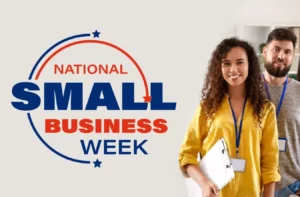The Illinois Tollway spends about $1 billion per year on construction projects. Its investment in the construction industry is, unequivocally, the largest in the state. And it’s no secret.
“Everyone is looking at the Tollway for that,” said Gustavo Giraldo, Chief of Diversity and Strategic Development at Illinois Tollway.
So how do Latino-owned businesses get a slice of the pie?
For the past five years, Giraldo has been working to increase opportunities for businesses owned by minorities, women and veterans. Prior to his tenure at the Tollway, the Department of Diversity and Strategic Development didn’t exist. Now, a number of successful programs are in place, with expansion plans underway.
For every project, the Tollway comes up with a goal for the portion of contracts going to businesses owned by women and minorities. Giraldo estimates the overall spend on both construction and professional services is about 24 percent on par with the goals for each project.
The federal Disadvantaged Business Enterprise program was created to help women and minority business owners battle discrimination in the industry and make up for historic discrimination that may have lingering effects. Even beyond these overt factors, however, Giraldo said the industry tends to work against newcomers.
Jobs with the Tollway have particularly high stakes. There are the liability concerns of having employees working alongside high-speed driving conditions. Equipment used on these projects is generally very expensive, and high labor costs are virtually guaranteed in an industry dominated by unions.
“Any new small, minority, or woman-owned business that wants to be in that type of environment is going to have to face some of these very expensive conditions that most of them are not outfitted to accommodate,” Giraldo said.
The Tollway’s “Partnering for Growth” Mentor-Protégé Program has provided one way for minority-owned businesses to get a foot in the door. The program started as an initiative for the Tollway’s professional services, but Giraldo said it will be expanded to all construction projects in the near future.
The nationally acclaimed model connects mentor businesses with smaller protégés, giving the smaller businesses a chance to get a contract through a joint venture and eventually work their way up to becoming prime contractors themselves. The Tollway offers incentives to mentors to ensure they are motivated to help protégés become successful.
A small business set aside initiative, while gender and race neutral, provides another way in. About a dozen projects each year are set aside for bids from registered small businesses only. The contracts generally top out at $1 million and give small contractors an opportunity to run their own projects, building up their experience and preparing them to eventually bid on larger and larger projects.
The Tollway’s contracts range from $1 million at the low end to $100 million.
Another key program that helps Latino construction employees in the state is the Earned Credit Program. The Tollway offers contractors virtual credits for every African American, Latino, Asian, female, veteran or ex-offender they hire. Those credits can be used to offset a competitor’s low bid on future contracts.
Over the last seven years of the program, nearly 250 people have been hired and they have collectively earned more than $12 million.
“We have had an incredible level of success with the Earned Credit Program, encouraging contractors to hire people who otherwise would have never, never had a chance to get these well-paying jobs in this industry and literally build long-term careers,” Giraldo said.
The Tollway already has three technical assistance centers across the Greater Chicago area to help businesses owned by women, minorities and veterans, and it has requests for proposals out to open a workforce development center, probably in the south suburbs.
A new committee of the board of directors offers additional guidance for Giraldo’s department to better serve disadvantaged businesses, and the Tollway formed a diversity advisory council of nearly two dozen advocacy agencies to make recommendations on policy, programs, and workforce development.
While Giraldo still believes the Tollway doesn’t do enough business with minority-owned firms, he can say for certain it is doing more now than it was five years ago. About 375 businesses owned by women, minorities or veterans currently work with the Tollway. In 2011, there were barely 200. By Tara Garcia Mathewson.










